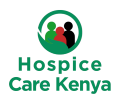Like the UK and much of the world, every day life in Kenya has changed beyond recognition. Covid-19 has had a detrimental impact on the ability of hospices to support their patients. Hospices remain open and have introduced rigorous disinfecting routines, but most lack even basic personal protective equipment. A ban on gatherings means that vital services like support groups and day-care have been suspended. Training for health staff and community health volunteers has been postponed. Hospices tell us that their vulnerable patients are very scared. Many fear that restrictions on family members visiting will leave them lonely and isolated; many fear they will run out of pain medication. But together with our partner hospices and the Kenya Hospice and Palliative Care Association (KEHPCA) we are looking for ways to provide care to patients with life-limiting illnesses whilst protecting their fragile health.
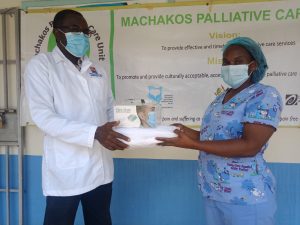 All hospices have advised their patients to stay at home with hospice appointments becoming less frequent to protect patients. Our partner, KEHPCA, has secured a small amount of funding to provide some protective equipment for staff to allow essential appointments to continue. Many appointments are being carried out over the phone as regular phone contact can still provide emotional and practical support, whilst protecting the health of vulnerable patients. We are supporting some hospices with the costs of remote appointments.
All hospices have advised their patients to stay at home with hospice appointments becoming less frequent to protect patients. Our partner, KEHPCA, has secured a small amount of funding to provide some protective equipment for staff to allow essential appointments to continue. Many appointments are being carried out over the phone as regular phone contact can still provide emotional and practical support, whilst protecting the health of vulnerable patients. We are supporting some hospices with the costs of remote appointments.
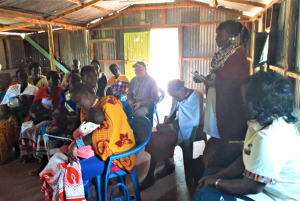
Last year we supported the training in basic palliative care for this group of community health volunteers from Kajiado County, south Kenya.
They are now using their knowledge to educate their community members on Covid-19 and how to protect themselves through hand washing. In these deprived predominantly tribal communities, where literacy rates are low, raising awareness is essential but the remote location, dispersed population and lack of clean water make this a huge challenge.
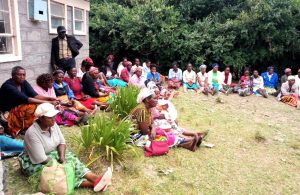
We helped Nanyuki Cancer Support Group to train a group of 29 community awareness volunteers in December. Between January and March they reached almost 3,000 people in women’s self-help groups, church groups and community meetings with cancer information, before the pandemic prevented these activities. But in May we supported the group to undertake training in COVID-19 awareness communication and they will now use their skills to educate communities on Covid-19 and help vulnerable cancer patients to protect themselves through social distancing.
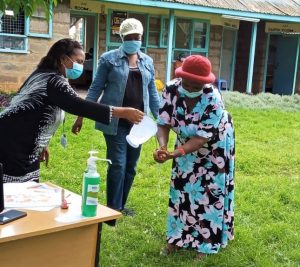
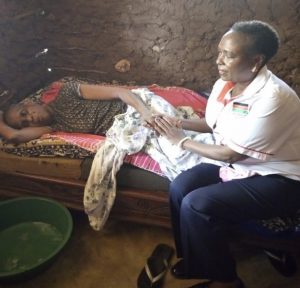
We support Malindi Palliative Care Unit to care for over 300 patients each year in their homes across Kalifi County. The team covers a large area, often travelling up to 50km over difficult terrain to reach patients who would otherwise go without care and pain relief. Home visits were suspended in March to enable the team to review their health and safety procedures and source protective equipment. Following social distancing procedures where possible they resumed home visits in April to bring vital home-based palliative care to their patients.
Balancing the importance of providing much needed palliative care whilst protecting the lives of hospice patients has become a daily challenge for hospices. Thank you to the palliative care staff and volunteers who are working hard to care for their patients under very difficult circumstances and with increasingly stretched resources.
Please DONATE NOW to support this vital work. Thank you.
